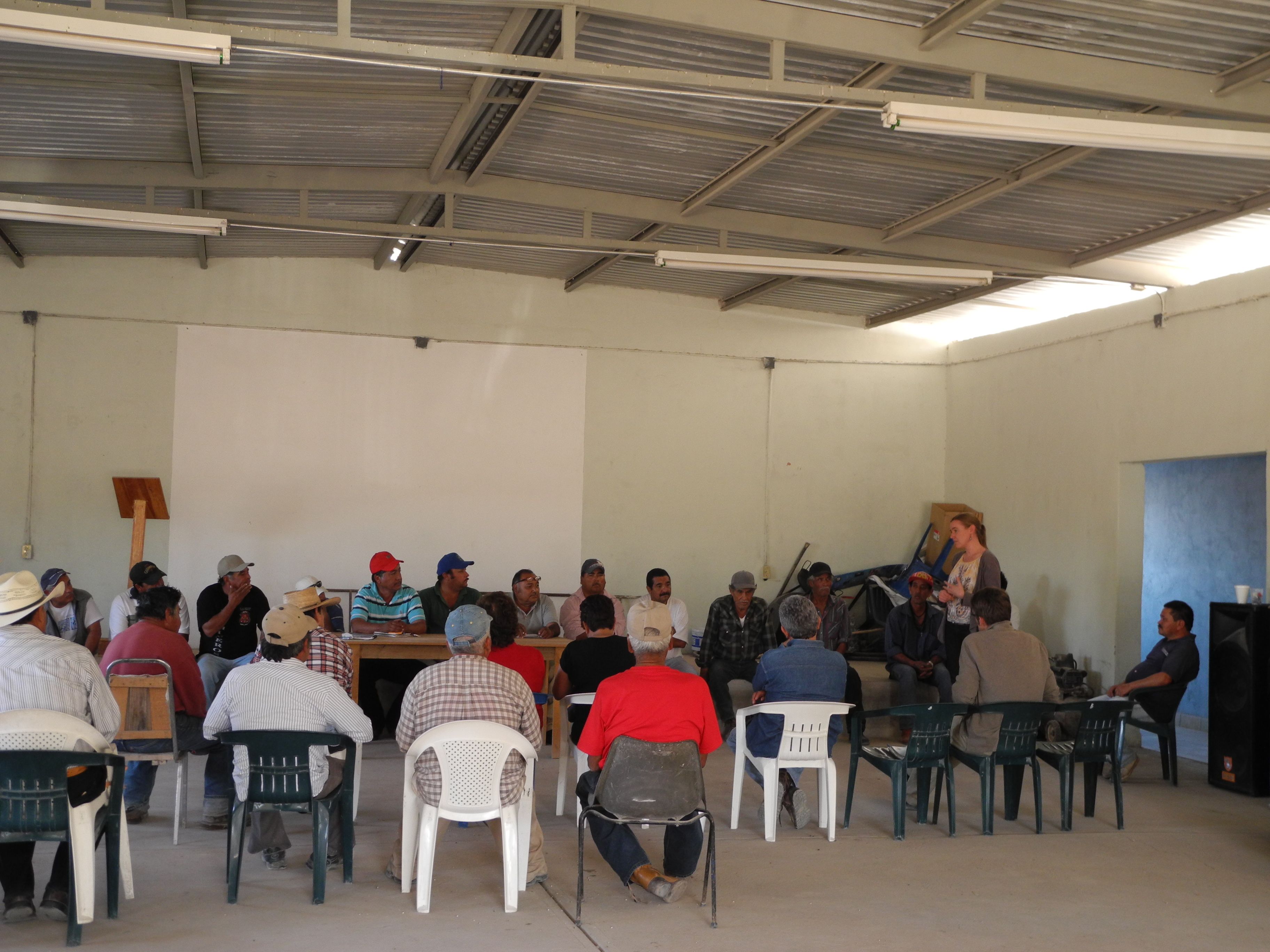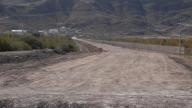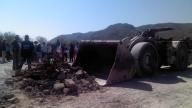by Jen Moore
In early December 2012, I was invited to visit the Ejido La Sierrita - an agricultural community of some 127 collective landholders in the northern Mexican state of Durango - to demonstrate MiningWatch Canada’s solidarity with their struggle.
About a 45 minute drive outside of the city of Gómez Palacio, La Sierrita is in the middle of the Chihuahua Desert. Its namesake is the short stretch of mountains spanning several dozen kilometres across their land, part of the Sierra Madre mountain range.
When Toronto-based Excellon Resources first arrived in 2005, La Sierrita saw an opportunity to attract home community members who had migrated away in search of work.
In 2008, with the help of a Mexican non-profit, Proyecto de Derechos Económicos Sociales y Culturales (ProDESC) and after a significant struggle, the Ejido reached a land use agreement with the Canadian silver and base metals producer whose only operating mine is now across the federal highway, up against the side of a mountain. In 2010, the Ejido also undertook their own land use plan to guide them in developing other productive projects to best serve their community, making sustainable use of available resources on their lands.
Their agreement with Excellon included an initial payment, around $500,000 USD per year for their members, as well as preferential access to contracts for food services and transportation, a water treatment plant to treat water discharged from the mine to make it useful to irrigate their desert land for agricultural uses, a payment to a community development fund, and 600,000 shares in the company.
Unfortunately, while the Ejido received regular annual payments under the agreement, they found that the social and environmental clauses in the contract had not been fulfilled. Locals who went to work in the mine complained about working conditions, particularly after Paulin Contreras was killed on the job in early 2010. Workers then faced intimidation when trying to form an independent union local to address their concerns. In 2012, some fifty workers who the company identified as union supporters lost their jobs.
During the past year and a half, the Ejido filed complaints in Canada and made various attempts to dialogue with the company to resolve these issues. But the company wouldn’t budge.
Seeing no other option, in early July 2012, La Sierrita set up a protest camp in front of the mine on private property owned by a third-party landowner. Day and night people stayed at the camp for three and a half months.
During this time, further attempts at dialogue failed and at the end of August, shortly after the company hired a well-connected lobbyist in Ottawa, intimidation and threats from federal police and military officers began. No details are yet known about the lobbyist’s activities, since none were reported on Canada’s lobby registry.
Then, early in the morning on October 24th, the camp was destroyed. Some six or so people were in the camp at the time, while others maintained a second camp that had been set up further down the road.
According to the six people who were present, it was early morning and they were waking up, starting to get breakfast ready when the then company Chief Operating Officer, Rob Moore, led a convoy of white pick-up trucks bearing company logos and several busloads of people from mines in the states of Zacatecas and Chihuahua toward their camp. The camp was well stocked with blankets, chairs, tables, dishes, a refrigerator, a big container of lard, oil, rice, flour, coffee, sugar, and potatoes. One elderly woman who was among the six recalled how women employed by the company arrived ahead of the convoy, warning them that they should get out of there, that they could get hurt.
“They arrived without consideration for anything,” she remarked. Her husband added that the company COO cut the wire fence that they had erected around the camp. After the fence was cut, a scooptram drove out of the mine site and rolled into their camp.
“They knocked it all over, all of the food was knocked over,” said one woman. “The scooptram picked up the canvas wall of the kitchen and held it up like a flag,” said one man. Then everything was burned. It all took place in about twenty or thirty minutes.
“We expected that we might have been evicted by other people, soldiers or the federal police perhaps, but not by them. We didn’t expect that from them, but they did it by their own hand,” expressed the elderly woman in dismay.
Hands shaking, another community member who was not present at the time but was noticeably affected, took to his feet. Gathering his courage, he stared straight at me and said: “This was an eviction and a robbery. Rich people don’t lack for anything, but this is an offence to us".
“We rent the land, not our dignity,” remarked another.
“They think that they’re the owners of Mexico,” said yet another, indignant.
Excellon is not the biggest employer by far in Durango, nor the most important mining operation in the state. But the sense of entitlement with which members of La Sierrita perceive that the company is carrying out business is an affront to them and their community development plan.
Several years ago, Excellon figured into La Sierrita’s local development plan. Now, in the wake of October 24th, faced with the company’s intransigence to dialogue with the Ejido and the workers, and the lack of effective tools with which to bring the company to the table, Excellon has become an unwelcome presence that the Ejido is working to free itself from.
“Before the company arrived, we managed to get along,” stated David Espinoza, current President of the Ejido. And they will again. He and other members have concluded that, moving ahead, they must focus on their own projects to generate jobs and gain their independence from the mine.
Since January, they have been working to rescind the contract with the company and get back their land. In April, a Mexican tribunal obliged the company to return 1,100 hectares to the Ejido in a first step toward this goal.






